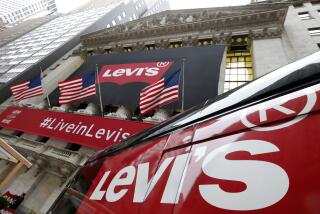Pillsbury Will Modernize Food Plants, Lay Off 1,300
MINNEAPOLIS — Pillsbury Inc.’s announcement Thursday that it will invest $140 million to modernize food plants and lay off 1,300 workers is the kind of brash move people have come to expect from the new owner, Grand Metropolitan PLC of Britain.
In the year following Grand Met’s hostile $5.8-billion takeover of Pillsbury, the real estate, liquor and gambling conglomerate has taken a number of drastic restructuring steps. They range from reform of its Burger King fast-food subsidiary to the sale of seafood businesses to the closure of unproductive facilities.
On Thursday, Pillsbury said it would close at least two more plants and a distribution center to shift more production to Ohio and Tennessee, resulting in the loss of up to 1,300 jobs during the next 18 months. The losses could be offset by at least 800 new jobs.
The restructuring will reduce to about 16,500 the number of employees at Pillsbury and Burger King. By comparison, Pillsbury and Burger King employed about 104,000 people in mid-1988.
“My favorite analogy is burning our boats in the bay,” said Ian Martin, Pillsbury’s new chief executive. “I like to stand with my troops on the hillside and say, ‘There stand the boats. They’re burning. We’re not going back out by sea. The only way we win is by going over the hill.’ ”
Eleven-year Pillsbury executive David Webber said Martin wasted no time demonstrating the aggressive approach. Webber was fired in July after presenting a flat sales projection for the beleaguered frozen pizza division.
“In my terms,” Martin said, “that’s planning for failure.”
The changes have coincided with a 30% increase in operating income at Pillsbury over the first nine months compared to the same period a year earlier, and Martin is projecting a profit for the full year.
More to Read
Inside the business of entertainment
The Wide Shot brings you news, analysis and insights on everything from streaming wars to production — and what it all means for the future.
You may occasionally receive promotional content from the Los Angeles Times.










